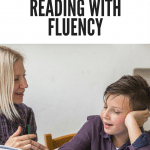 I always get really excited when the Olympics come on TV. It gives me a chance to see sports on TV that are not usually shown and the amazing back stories about the athletes are always appealing. This year I mentioned the Olympics to my students and the universal reply was that they had no idea what I was talking about. One student asked if it involved football. I was really disappointed to hear that. Not because I want my students to just share my enthusiasm (though that is an appeal), but because I feel they could benefit from watching. This is probably one of the very few times I would advocate for a student to watch TV.
I always get really excited when the Olympics come on TV. It gives me a chance to see sports on TV that are not usually shown and the amazing back stories about the athletes are always appealing. This year I mentioned the Olympics to my students and the universal reply was that they had no idea what I was talking about. One student asked if it involved football. I was really disappointed to hear that. Not because I want my students to just share my enthusiasm (though that is an appeal), but because I feel they could benefit from watching. This is probably one of the very few times I would advocate for a student to watch TV.
I mentioned that I really enjoy the back stories about the various athletes, and I really wish my students got to hear them too. I teach in a low income neighborhood and students often do not realize that there are better opportunities in life. One summer Olympics there was an athlete from the same area as my students; that’s the only time I wish there had been school in July. I want my students to see where hard work can take you. I want my students to hear and see that information from someone other than a teacher. I know that not all my students are going to suddenly pick up alpine skiing and be in the next Olympics. I do want them to understand that they are not limited to a job in the neighborhood that they live in after high school.
I also have another more academic reason for promoting the Olympics. Vocabulary. Students from low income homes are at a distinct disadvantage when it comes to vocabulary. This starts at an early age. There’s a disadvantage before the students even start pre-kindergarten. Vocabulary comes from life experiences, not just reading. By watching the Olympics and becoming exposed to these new sports that may not be available in the local community center, the students are hearing words that cannot be heard around the neighborhood. Where else would you hear the words alpine, bobsled, and half pipe?
Social studies also comes into play when watching the Olympics. The students are exposed to different cultures. The opening and closing ceremonies always combine elements of the host country’s culture. The commentators are able to fill in the gaps as to why certain dances or costumes are being used. Watching a cultural dance or song is so much more memorable that reading about it in a book. The geography part of social studies has a connection as well. Who had ever heard of Sochi before this Olympics? Students have a chance to learn where the games are taking place. By watching the broadcast they can see maps of the games. Maps they might never look at at home.
I can only hope that my students internalize some of these stories, and vocabulary and social studies lessons that come from watching the games. I hope that it affects them in a positive way that influences them to work hard in school and become successful in life.



